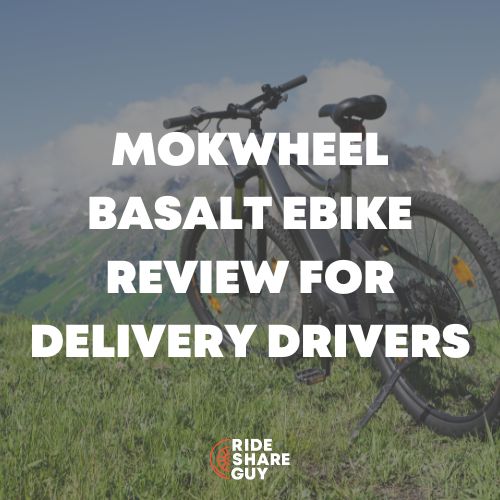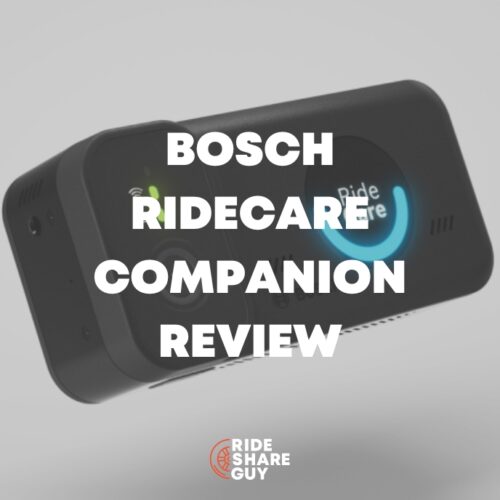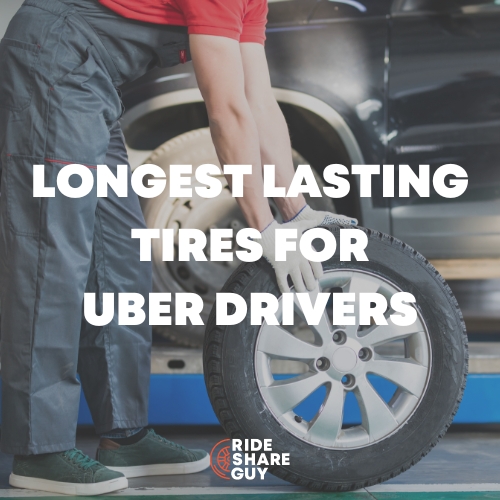It seems like worker classification is in the news a lot, with the government firing one salvo to make drivers employees, and the companies firing another salvo to pass laws or ballot initiatives like California’s Prop 22 that makes drivers contractors.
The Trump administration was pro independent contractor status, but now the Biden administration has changed course, and the Democratic-controlled Congress has revived talk of the PRO Act, which could supersede some state laws. What does it all mean to you? Senior contributor Gabe Ets-Hokin puts on his legal and policy-analysis cap to sort it out.
Back in 2014, when I (and Harry and maybe a lot of you, too) first signed up to do Uber, Lyft and the other rideshare services, it looked like a quick and easy way to be in business for ourselves. That we were independent contractors seemed obvious—we provided our cars and labor, while the gig company provided dispatching, insurance and payment processing.
It was much more like AmWay or Mary Kay than driving for an airport shuttle service or taxi company, especially when it came to getting paid—it wasn’t a salary or hourly rate. Instead, we got 80 (later 75) percent of what the customers paid, plus tips.
The years passed, and that distinction got muddier. The companies, stumbling towards some kind of path to profitability, started separating what the customers charged from what we got paid (ahem, upfront pricing!)—instead, we were increasingly getting something that looked like an hourly (or minutely) rate for the “booked time” we were either going to get the passenger or had the passenger in the car.
Bonuses based on what times we drove moved us towards working certain hours, and a passenger-oriented rating system combined with instant deactivations based on uninvestigated claims—often false or retaliatory—tightened company control over how drivers performed their jobs. Were we still independent contractors?
If it walks, quacks and drives like a duck, it’s a duck. Whether you think you’re an independent contractor or not isn’t really important. Just because Uber and Lyft say—over and over—that you’re an independent contractor has more influence, but it still isn’t the deciding factor. Who gets to decide are the regulatory and judicial institutions tasked with regulating the labor market, and the verdict is overwhelmingly, unquestionably, that we’re employees—like it or not.
ABC—Easy as 1-2-3?
As we covered in our previous article on AB5, the ABC test tried to codify a California Supreme Court design called the Dynamex Case. As we mentioned in our previous article;
From The Verge,
The California Supreme Court ruled on Monday in favor of workers for a document delivery company called Dynamex Operations West that were seeking employment status. The drivers for the delivery service first brought their case over a decade ago, arguing that they were required to wear the company’s uniform and display its logo, while providing their own vehicles and shouldering all the costs associated with the deliveries.
As part of this decision, the CA Supreme Court also laid out an ‘ABC Test’ to help businesses determine whether workers are employees or independent contractors.
The ABC Test
To hire an independent contractor, businesses must prove the following (Harry’s take is below in italics):
(A) that the worker is free from the control and direction of the hirer in connection with the performance of the work, both under the contract for the performance of such work and in fact.
(B) that the worker performs work that is outside the usual course of the hiring entity’s business
(C) that the worker is customarily engaged in an independently established trade, occupation, or business of the same nature as the work performed for the hiring entity.
In January 2020, AB5 was officially put into place. Gig companies fought the implementation of the law all year, and by November 2020, California voters faced a vote on the fate of Proposition 22, which was clearly a rebuke to AB5.
Read more about AB5 here.
Proposition 22
Proposition 22 is another side of the AB5 coin. As we said in our original Proposition 22 article:
AB5 and Prop 22 are mostly opposing forces; however, Prop 22 would likely not have come about if AB5 had not become a law.
Prop 22 is proposing a new law that has language specifically addressing rideshare and gig economy companies and how they can classify their workers in relation to AB5 legislation.
The PRO Act is more along the lines of AB5 vs. Proposition 22 – and this likely has Uber (and other gig companies) worried.
As we all know, Prop 22 passed in California, which meant rideshare and delivery drivers would be considered independent contractors in California – not employees.
Read more about Proposition 22 here.
UPDATE MAY 2022: Protect App-Based Drivers and Services, the mostly Uber and Lyft funded organization that spent about $220 million to get Prop 22 passed appealed a California Superior Court decision from last August that made the law unconstitutional. The court wrote that ballot initiatives that create legal statutes (as opposed to changing the California constitution itself) must be restricted to a single subject.
In the case of Prop. 22, the new law aims to not only “protect” the right of workers to have independent contractor status, but also to prohibit them from having union protections, a provision that doesn’t do anything to preserve worker rights or compensation, but instead only serves to “protect the economic interests of the network companies in having a divided, ununionized workforce, which is not a stated goal of the legislation.” PABDAS has appealed the case but there’s no information on when it will be heard by the state’s supreme court.
When the Going Gets Weird, the Weird Turn PRO (Act)
The Trump administration was clearly on board with Uber and Lyft’s pro-independent-contractor agenda, but no more. New Labor Secretary (and former mayor of Boston) Marty Walsh has openly stated that “gig workers should be classified as employees,” and earlier in May the Labor Department tossed out a Trump-era rule which will make it harder for companies to classify employers as independent contractors for federal labor-law purposes. Note that this won’t change employment status for workers—it’s more a matter of sorting out jurisdiction for various regulations.
Right now there are two important bills in the US Congress that could send gig workers on the path to employee status. The first is the Protect the Right to Organize (PRO) Act, HR2474. Passed by the House of Representatives in 2020, the bill proposes to amend the National Labor Relations Act (NLRA) to (among a lot of other things) broaden the class of employees covered by the 86-year-old act. The broadening mechanism? A concise 70-word ABC test that’s almost word for word the same as AB5’s.
According to NPR, here are five provisions in the PRO Act:
- End state Right to Work laws
- Employer interference and influence in union elections would be forbidden
- Newly certified unions could seek arbitration and mediation to settle impasses in negotiations
- The PRO Act would prevent an employer from using an employee’s immigrations status against them when determining terms of employment
- Establish monetary penalties for companies and executives that violate workers’ rights
If the PRO Act is signed into law, it would be harder for gig companies to keep workers from forming unions and going on strike, “just one step along the way” to restoring full employment rights to gig workers, according to noted labor attorney Shannon Liss-Riordan (Liss-Riordan’s law partner, Harold Lichten, was the first to argue for the implementation of the ABC test in New Jersey, which led to the California Supreme Court adopting it in 2018, in turn leading to the legislature codifying it with AB5).
Not only would it extend NLRA rights to drivers, it would also require all gig workers covered by a union to pay for collective bargaining, prohibit gig companies from forcing workers to agree to binding arbitration agreements, and allow strikes to support third-party unions. Clearly not a good thing for a gig company’s peace of mind.
The PRO Act has gotten the attention from the press, but Liss-Riordan alerted me to another bill, Washington Senator Patty Murray’s Worker Flexibility and Small Business Protection Act (S4738). This bill would amend the Federal Fair Labor Standards Act (FLSA) to extend federal minimum wage and overtime protections to gig workers, as well as leveling the playing field for small businesses by making CEOs and investors individually liable for worker misclassification.
The federal minimum wage is $7.25, but it’s just a matter of time before it’s raised to something closer to a living wage. Regardless of the amount, it’s better protection than laws like Proposition 22, which only guarantee minimum pay for “engaged” time, not the time spent waiting for a ride or dead-heading to a busier place to work, about 33 percent for the average driver.
Political conservatives and gig company shareholders don’t like either of these bills, obviously—they’ll tell you they’re nothing short of communism and will destroy Life as We Know it. Labor organizers and progressive politicians will say they’re necessary to keep us from sliding into a dystopic future where gig work will be only a few steps above slavery.
I think the truth lies in the middle, but it’s all academic—both bills are dead because the US Senate’s filibuster system prevents them from coming to a vote. Short of getting 10 more Democratic senators (as if!) or tossing out the filibuster rule (ditto!), that’s not happening.
UPDATE MAY 2022: As predicted, neither of these bills have come to anything, although they are technically ready to be voted on in the Senate.
Now What?
Uber and Lyft would probably love some kind of blanket federal law defining us as independent contractors now and for all time, or at least get a solid Supreme Court ruling, but there isn’t a good chance of either of those things happening. A conservative, easy-to-reach definition of an independent contractor, perhaps similar to the rule Uber and Lyft use, which is “independent contractors are whatever we say they are,” won’t get through the Senate for the same reasons opposing bills die sad lonely deaths.
And strangely, even though the Supreme Court now has a 6-3 conservative majority, it tosses relevant cases back to the lower courts, most recently just earlier this year. It’s hard to figure exactly why, since the Court seldom explains why it won’t hear a case, but “originalist” justices believe less is more when it comes to adjudicating.
The path open to Uber, Lyft and company is to forge ahead state by state. They already secured their largest market, California, with Prop 22, and that model will likely be the template for any other troublesome state.
Massachusetts may be next. State Attorney General Maura Healey sued Uber and Lyft for employee misclassification last year and the state court upheld the suit—which the companies will likely lose.
But that’s not the end of the world for them—they’ll fight to the bitter end in the courtroom and likely appeal up to the Supreme Court—as Massachusetts has a ballot-initiative process similar to California. Expect to see something a lot like Proposition 22, except maybe with the word “wicked” in the title.
Update August 2021: That ballot measure is coming to Massachusetts, albeit without ‘wicked’ in the title. The Massachusetts Coalition for Independent Work, an organization similar to the Uber and Lyft funded California organization, put forth a proposal similar to Prop 22 in August 2021.
There’s already a suspiciously well-funded “grass roots” organization called the Massachusetts Coalition for Independent Work, dedicated to “advocating for app-based platform workers” that sounds a lot like California’s “Save App-Based Jobs and Services.”
UPDATE MAY 2022: The Massachusetts Coalition for Independent Work has indeed gotten its version of Prop 22 on the Massachusetts ballot for the November 2022 election. It’s pretty much a clone of Prop 22, with very similar provisions and benefits, tailored to Massachusetts law. For some reason, drivers there would only be paid 26 cents a mile instead of 30 like in California, perhaps because of lower gas prices, or because the companies know they can get away with it. You can see the text of the proposed law here.
What Can You Do?
If you’re happy with how your gig companies treat you, then fine! No worries. If you do have a grievance—like you’ve deactivated unfairly, had tips or pay withheld from you, been harassed, slandered or threatened by passengers or just feel these companies represent the paragon of unfeeling, rapacious greed, you can likely recover (lots of) damages. We can’t give you legal advice, but there are plenty of lawyers who can, including Liss-Riordan and others we’ve covered on this site.
Gig Worker Regulations: State by State
Here’s what we know about laws regarding employee misclassification around the country, with the type of employment classification test it uses in parentheses. If you find errors, please let us know in the comments or by email—we’re not legal or political experts and may have gotten some things wrong or overlooked developments in your state.
We didn’t list each state, just the largest ones, so again, please let us know if you think your state has significant developments. In states where there is no automatic determination of employment status and not a lot going on in litigation, my sense is Uber and Lyft have been quietly fighting or settling these suits—much cheaper than lobbying a hostile legislature or getting a ballot initiative passed.
California: (ABC) The Golden State is America five years from now in a lot of ways, and Prop 22 may be the model for the “third class” of worker classification. Still, Liss-Riordan wants to remind you that even though 22 has made you forever and always an independent contractor, you may still be able to recover wages and benefits due from before December 2020, when it went into effect.
Colorado: (‘right-to-control’ common law test) New legislation in effect January 1, 2022 will create a “rebuttable presumption” that a driver is an employee. Look for a ballot initiative designating drivers as contractors soon.
Massachusetts: (ABC) This looks a lot like California—state law is firmly on the employee side, so to avoid employment classification, the companies will likely sponsor some kind of 22-like ballot proposition for the 2022 election.
Update August 2021: The ballot measure for a Prop 22 clone is coming! The new ballot measure was put forward by the Massachusetts Coalition for Independent Work (similar to the one created in California) and offers a similar proposal to Prop 22.
New Jersey: (ABC) Pending lawsuits against gig companies may yield huge judgments, and the governor signed a raft of laws toughening penalties and enforcement against misclassification violators. Citizens can’t put initiatives on the ballot in New Jersey, and the labor-friendly legislature would be unlikely to put something Prop 22-ish directly in front of the voters. Fans of watching Uber and Lyft squirm should keep an eye on New Jersey.
New York (common law): There’s pending legislation to enact an AB5-like law to codify an ABC test in New York, but there’s plenty of opposition from both right and left. There is no provision for citizen-launched ballot initiatives in New York, and the legislature is pretty labor-friendly, so this could be a tough nut for the gig companies to crack.
New York City actually has the strictest minimum wage law, and while at the time Uber and Lyft disagreed with the ruling, a report in 2020 showed driver pay increased without any significant fare increases on riders.
Illinois (ABC test): Workers are presumed employees here, and the left-leaning legislature is unlikely to pass legislation making drivers contractors. That’s probably why, last year, Lyft spent $1.2 million dollars to create a PAC called “Illinoisans for Independent Work.” That money was spent mostly on mailers supporting Democratic state legislature candidates–sneaky, no? Ballot measures aren’t really a thing in Illinois, so look for some kind of Uber/Lyft-sponsored law to crop up.
Florida (‘right to control’ common law test): There seems to be pending misclassification lawsuits in Florida, but not much action from Florida’s GOP-dominated state government.
Texas (common law): In response to Austin and other jurisdictions imposing regulations that made Uber and Lyft leave that city in a huff, the legislature and governor passed HB100 in 2017, which declares TNC drivers independent contractors “for all purposes” if “the company and the driver agree…”
Pennsylvania (variety of common-law tests): Gig companies are likely very concerned about Pennsylvania. It’s the state where UberBLACK drivers filed a misclassification lawsuit, the same lawsuit mentioned above that was denied a hearing by the US Supreme Court. It will now go back for trial, and if the court finds for the drivers, will likely be controlling law—unless the legislature does something to redefine gig workers. In PA, ballot measures can only go before voters with a majority vote from the legislature.
UPDATE MAY 2022: A group of PA state assembly members is working to introduce legislation that would tighten the employee-classification test and increase penalties for businesses that improperly classify workers as independent contractors.
Ohio (right-to-control common-law test): Uber and Lyft were miles ahead of the labor lawyers when, in 2015, they basically wrote their desired legislation, which was passed and signed into law. It firmly declares that not only are TNC drivers not employees, they’re not even agents, shielding the TNCs from all kinds of liability.
Washington (common law): Washington currently has two bills pending to make the ABC test state law. I didn’t see any successful lawsuits against Uber or Lyft, but drivers are guaranteed a minimum wage in Seattle—the second city after New York to pass such a law. Washington citizens are allowed to place initiatives on the ballot, so look for a 22-like thing happening here.
UPDATE MAY 2022: On March 31, 2022, Washington Governor Jay Inslee signed House Bill 2076 into law, which created a minimum wage for gig workers and requires companies to pay benefits in exchange for not classifying the drivers as employees. I think this law, which takes effect next year, is hopeful, as it came into being through a collaborative, not combative process between drivers and the companies, assisted by politicians and the Teamsters union, of all people.
The law doesn’t guarantee a minimum wage in the same way Prop 22 does—instead, it gives drivers a reasonable per-mile and per-minute meter rate that should, if the drivers can stay busy enough, result in a living wage. Contrast that to Prop 22, which pays 120 percent of minimum wage and 30 cents per mile, but only for “engaged” time, which is only about two-thirds of a driver’s time.
Georgia (modified ABC): A bill to designate all TNC drivers as contractors died in the state legislature in 2018, but there isn’t much in the way of misclassification lawsuits against Uber or Lyft.
North Carolina (common law): Here the state government is tough on employee classification, and also the home of one of the oldest federal employee misclassification lawsuits, Hood v. Uber, which was settled in 2019. However, the law that legalized Uber and Lyft in the state in 2015 creates a rebuttable presumption that drivers are contractors, a presumption that’s likely difficult to overcome in arbitration.
Michigan (common law): Like many other states, Michigan passed a law in 2017 that makes app-based workers contractors drivers if the “company and the driver agree in writing.”
Arizona (common law): Like a lot of states with pro-business legislatures, in 2016 Arizona passed a law creating a presumption of independent contractor status if the parties agree in writing.
Gig Worker Regulations: By Country
We looked at a few countries where the battle between the Uber Goliath and local-regulator Davids seemed interesting and indicated where things are headed when it comes to regulating rideshare companies.
What we found grabbed us because no matter where you go, the result is the same: by almost any legal definition, regardless of country, when an employment test is applied to gig workers, we’re generally found to be employees (Australia and the USA are notable exceptions). And just as predictably, Uber aggressively lobbies local and national lawmakers in hopes of altering existing law to get its desired results. Here are some specifics.
Canada
Like the US, Canada’s labor laws are a patchwork that varies from province to province, and employment classification is even murkier than south of the (Canadian) border. Despite the confusion, gig workers are still considered “dependent contractors” under Canadian law, most notably by the Canadian Supreme Court.
Canada’s more labor-friendly environment and lack of a ballot-initiative process will make Uber and other gig-work companies’ quest to keep labor costs minimal an uphill battle. That hasn’t stopped Uber and others from heavily lobbying provincial legislatures and government officials to change labor laws in their favor.
Holland
Uber was smacked with a big blow recently when the Court of Amsterdam ruled that not only are Uber drivers employees, they’re even covered by an existing collective-bargaining arrangement that will mean the 4,000 or so drivers affected by the ruling are due not just benefits and increased pay, but back pay as well.
Uber, of course, has appealed the ruling—that means it will go eventually to the Dutch supreme court and then to the European Union’s CJEU, the European Union’s equivalent of the US Supreme Court.
And that’s why it doesn’t look good for Uber in any EU jurisdiction. In 2017, the CJEU ruled that Uber was a transport company, not just a “technology platform” linking passengers to transport providers. That final verdict means that the CJEU will allow individual EU countries to treat Uber as an employer in employment-misclassification cases and other relevant matters.
Germany
If you’ve been to Germany, you’ll know folks there like to follow the law and don’t look too kindly on companies that swagger in and insist on doing their own thing. A huge obstacle to a service like Uber in Germany (and Spain, Belgium, and Greece) is the “return to garage” rule, which requires a limo or taxi driver to return to a company garage or base before picking up their next passenger. That’s one reason why since 2017 (when the EU ruled Uber has to obey local transport regulations), Uber is generally a marketplace sort of app, where the passenger uses the Uber app to book limos or taxi rides.
The rides are provided by taxi, limousine and airport-shuttle companies other than Uber, companies that employ their drivers and meet local regulations. Buying a 20-year-old hooptie and logging into the app the same day? Not going to happen in a German-speaking country, and though Uber is predictably ramping up its lobbying efforts there, strong pro-union, pro-worker sentiment will likely keep upcoming legislation from changing the laws very much.
France
“They pretend to pay us and we pretend to work” is an old sentiment among French workers, indicating the cultural vibe towards employment in general. So it’s no surprise the French Cour de Cassation, its highest court, classified Uber drivers as employees in 2020. More recently, a court found Uber guilty of unfair competition against Parisian cabbies.
Uber’s appeals will likely not prevail, which will probably lead to a German-style Uber system for France (just don’t call it German-style in front of a French person).
United Kingdom
Jolly Olde is no longer part of the European Union, but that hasn’t lightened up the Crown’s view of ridesharing apps like Uber. The UK Supreme Court ruled that Uber drivers are employees, not independent contractors, and amazingly, Uber agreed to abide by the ruling and pay minimum wage and provide benefits.
Except… Uber UK says it won’t pay for wait time, which as any driver knows means Uber expects us to work 30 or 40 percent of app-on time for free, making minimum wage requirements functionally meaningless. It’s clearly illegal to do this to workers—can you imagine how a firefighter union would respond to a city only paying when the firefighters are actually fighting fires?–but Uber’s strategy is to do as it pleases and then drags things out in the courts as long as possible.
What Does it All Mean?
My hope in writing this is to give my fellow drivers an understanding of what federal, state and even international laws regarding employment status look like and how it affects them. If you feel entitled to compensation, this should give you a notion of if you can recover or not.
It’s not an endorsement of the notion that we should all be employees—I’m under no illusion that the majority of us want that. But what we do want is to be treated fairly and with respect by the companies we work for, and being automatically and irrevocably declared independent contractors strips of almost all our collective bargaining power. We’ve all been treated like a meaningless nothing by the gig companies, but put 10,000 of us together, and they at least return our phone calls and invite us to meetings.
That’s why, in California, we’ve noticed Uber taking back some of the things real independent contractors should have, like the right to set our own fares and know the destination and fare for trips before we accept them. That’s why I’m against legislation declaring me a contractor, and for laws and regulations protecting my right to organize and protect my rights.
UPDATE MAY 2022: I still believe what I wrote last year, but the new law in Washington state showed me that drivers and companies can come together and work something out that meets the needs of both parties. But! Without representation from the Teamsters, it’s hard to imagine Uber and Lyft drivers organizing to any meaningful degree, and the companies know it.
Drivers, what do you think about AB5, Prop 22, the PRO Act or any pending legislation in your state? Is there something we’re overlooking or missed? Share your opinion below.
-Gabe @ RSG




